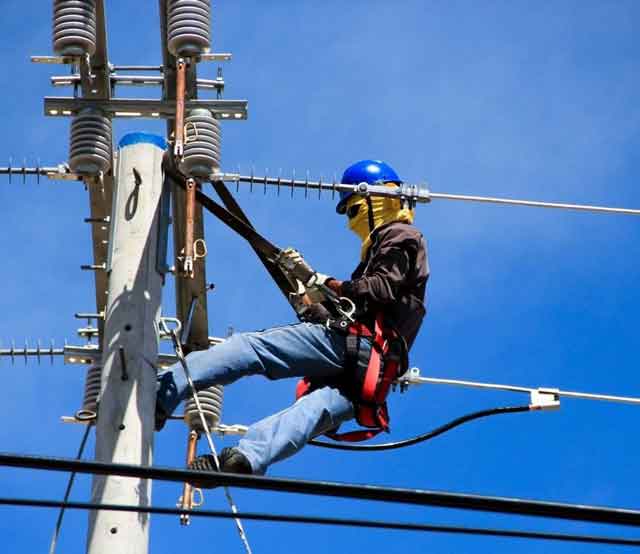
Twaake is coming in to bridge the gap of delivering clean energy to the households
Kampala, Uganda | THE INDEPENDENT | A coalition of global energy sector leaders coordinated by Power for All and funded by The Rockefeller Foundation has launched an integrated energy pilot in Uganda aimed at increasing power access and reduce the cost of connection.
Led by local electricity distributor Umeme, the companies will pilot the project dubbed Utilities 2.0 Twaake, in conjunction with several leading Uganda-based renewable energy companies to provide affordable, reliable, and clean power for all.
Other private sector companies are Africa Mini-Grid Developers Association (AMDA), CLASP, CrossBoundary, East African Power, EnerGrow, Equatorial Power, Nxt Grid, Rocky Mountain Institute (RMI), University of Massachusetts Amherst, Duke and Makerere University.
The project also involves providing asset financing which is aimed at studying the effect of asset ownership on electricity consumption.
The Ministry of Energy and Mineral Development says it plans to increase access to power from the current 52% to 60% by 2025 and 100% by 2030.
Currently, 28% of Ugandans access power on the national grid, with another one quarter using other sources like standalone solar systems.
Uganda remains among the countries with some of the lowest electricity accessibility, requiring connecting 10 million people today if the country is to meet the World Bank universal access measure.
According to the bank, among the 20 countries with the largest access deficits, Uganda, Kenya and Bangladesh showed the greatest improvement in electricity access since 2010, with annual electrification growth rates above 3 percentage points.
This was largely driven by an integrated approach that combined grid, mini-grid and on-grid solar electrification.
It is estimated that with the average cost of grid extension connection at $1,400 (5 Million Shillings), if grid extension was the sole method of service provision, the required investment would likely be $7 billion.
The Utilities 2.0 Twaake pilot is designed to cut this cost by at least half, by relying on integrated energy according to a joint statement.
Integrated energy combines centralized and decentralized technology (including solar home systems, mini-grids, grid and smart grid systems).
According to recent studies by Power for All and Duke University, connection costs can be reduced by 50 percent by reducing upfront capital cost by leveraging a utility’s ability to access cheaper capital while increasing the value of the customers through productive use applications that drive energy demand.
Through this integration, the partners hope that Uganda’s energy customers will derive more benefit for each kilowatt consumed.
The integrated energy pilot is deployed across two sites, Nyenje (on the grid) and Kiwumu (non-grid site), in Mukono district.
The grid-connected Nyenje has been operational since July 2020 with over 26 percent of businesses to date receiving income-generating assets for productive use.
“Businesses that received asset financing increased their electricity consumption by over 50% and business revenues have increased by over 70%,” says the statement.
In Kiwumu, the pilot has deployed a 40kW mini-grid (at peak), to power 300 households and 60 local businesses.
“Over 50 percent of the businesses in Kiwumu will receive asset financing to assist businesses with productive use. By helping customers move beyond access with appliance financing and financial literacy, the pilot project is expected to deliver jobs and improve incomes across both villages.”
In partnership with Makerere University and several Ugandan companies, Power for All will evaluate the socio-economic benefits of integrated energy and the effectiveness of the business models tests in the pilot.
Working with the government, the consortium aims to achieve Uganda’s first successful interconnected mini-grid in June 2022.
It will also identify approaches to replication and scale to accelerate energy access and deepen the benefits to Ugandans.
“Neither centralized nor decentralized energy can end energy poverty alone. However, through partnership and leveraging comparative strengths, traditional utilities and innovative DRE companies can create a new frontier in the fight to end energy poverty,” said Kristina Skierka, Power for All CEO.
“Twaake is coming in to bridge the gap of delivering clean energy to the households. This partnership will ensure that we deliver clean energy to the population in this pilot phase, pick lessons and use it to scale up. The partnership will assist to drive Uganda’s electricity agenda,” said Selestino Babungi, Umeme managing director.
*****
URN
 The Independent Uganda: You get the Truth we Pay the Price
The Independent Uganda: You get the Truth we Pay the Price





